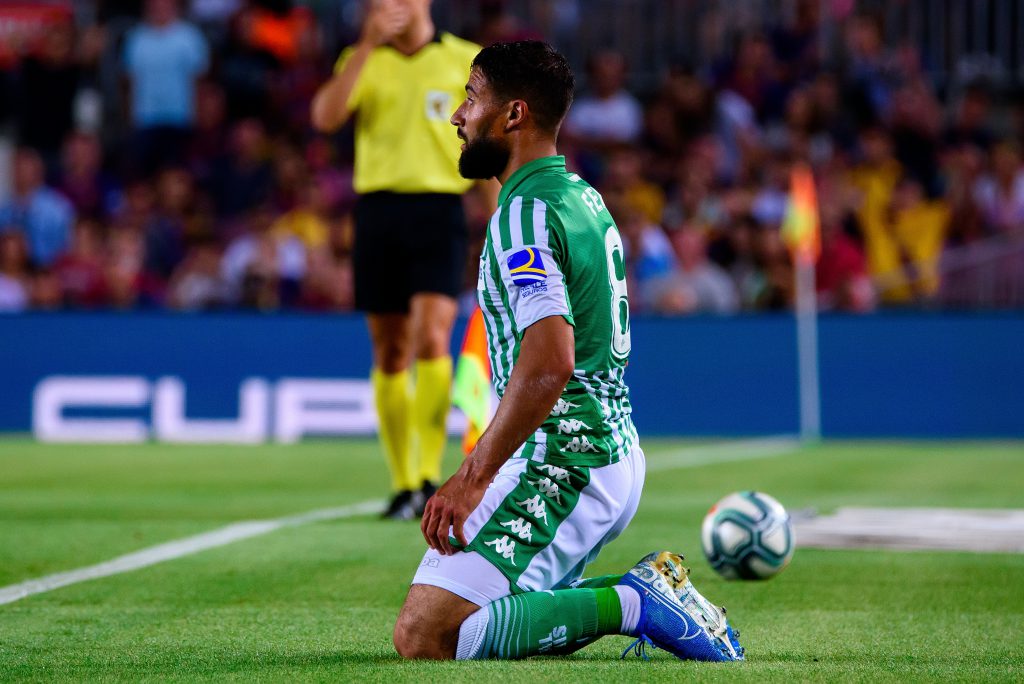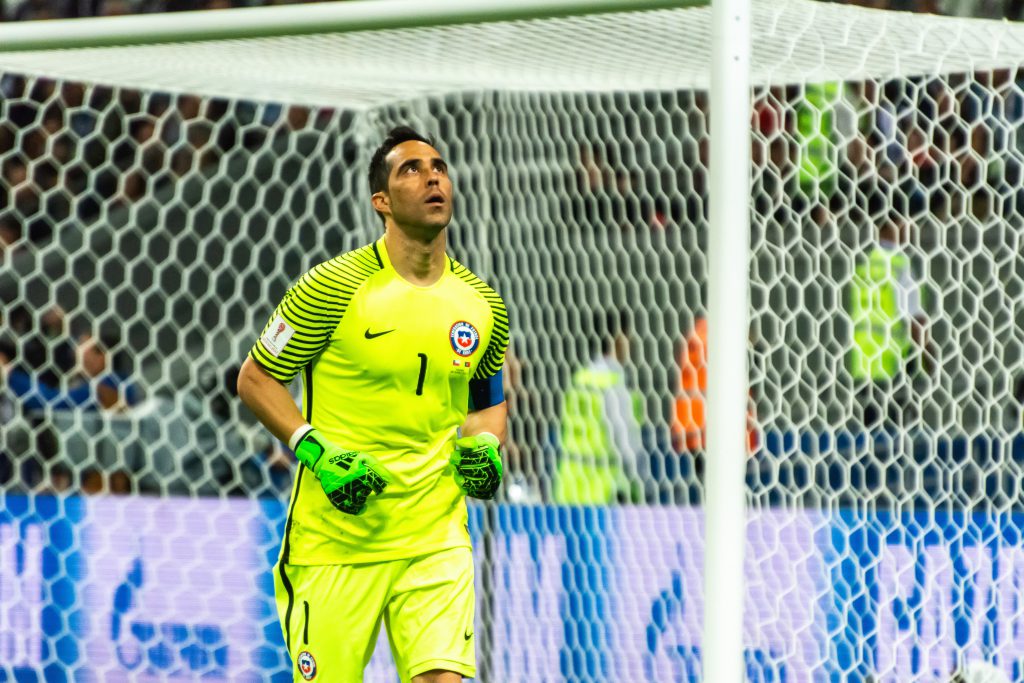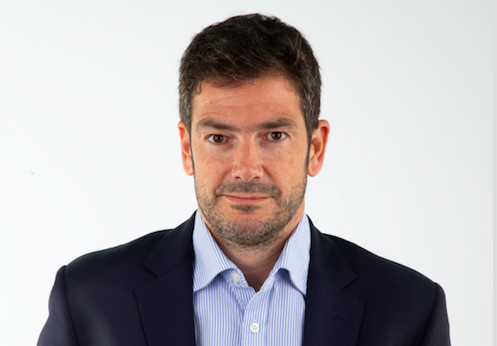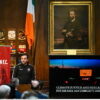Ramón Alarcón, the driving force behind Real Betis’ climate action strategy, talks to The Sustainability Report about learning from Amazon, brand values, and sponsor engagement
If you were putting together a ‘dream team’ of partners for your organisation, and wanted to buddy up with a genuinely high-profile selection of blue-chip and world-renowned institutions, Amazon, the United Nations and the European Union could potentially be close to the top of the list.
Real Betis, the top-flight Spanish football club, finds itself in that unique position. And the golden thread linking all the organisations together is sustainability.
Ramón Alarcón, the club’s director general, has been one of the driving forces in knitting this impressive partner network together and putting environmental responsibility at the top of the agenda for the team best known for wearing green.
A few weeks after establishing its Forever Green platform – an online tool showcasing sustainability best practice – Alarcón sat down with The Sustainability Report to discuss the partnerships, and why sustainability is good for business.
TSR: Hi Ramón, let’s kick off by discussing how this all started for Real Betis. When did sustainability become an important focus for the club?
RA: We have been doing things in terms of sustainability for a long time, but with no real strategy in the beginning. We did recycling and waste management with local companies, but three years ago we found a sponsor for our jersey called Green Earth. It is a blockchain company using blockchain technology to sell tokens, and with this money they maintained square metres of forests in Costa Rica. So, you can buy square metres of the forest to protect it using blockchain technology.
It was a nice project and thanks to these guys we were introduced to the United Nations, and we applied to be a signatory of its Climate Neutral Now programme. It happened two years ago, and our sponsor Green Earth offered Climate Neutral Now its place on the front of our jersey for a match to promote the movement. That jersey was also produced with recycled material.
In Climate Neutral Now, there are 300 big companies and when Real Betis entered into the programme it created huge awareness in the market because it was the first time a top-level soccer club started doing that.
TSR: So what does this partnership with the United Nations mean in practice?
RA: They invited us to COP25 (the big annual climate change summit) last December as it was in Madrid; it was supposed to be in Chile, but it happened in Madrid. After that, working with them for Climate Neutral Now gave us a good comprehension of the situation around achieving the goals of the Paris Climate Agreement.
We also participated in research conducted by the European Union in a programme called TACKLE, which shows you how to manage your stadium in a better way to reduce its environmental impact. With Climate Neutral Now we did the whole process. We hired a consulting company and the first thing they did is measure our footprint, the second thing is they gave us some recommendations about how we can reduce it. It’s important to change the way you do things and behave in a different way because if not it will be impossible to maintain the planet.

Thirdly, we compensate. For that we bought some credits for a project in Costa Rica. Now we have the certification for Climate Neutral Now.
TSR: And now you have launched the Forever Green platform?
RA: That’s right. We kept moving forward and decided to develop a platform called Forever Green and also took The Climate Pledge (a group of companies committed to achieving climate neutrality by 2040) that is led by Amazon, one of the biggest companies in the world.
With Forever Green, we tried to make it a place to share knowledge and work with different companies to do things. The United Nations called it ‘the race to zero’ – we have to run. It’s very important in terms of awareness, but also to educate people. But they have to be actions that you can measure. Our idea is to create a whole programme including many companies and to do specific projects that involve our fans and help us become more sustainable. If you ask people to go green, then you must be green. And now Betis is green.
TSR: Is climate change a big issue for the team in terms of its location? Are you sensing in Southern Spain that climate change is making things more difficult for your players and fans?
RA: It’s true that in Andalucia some years ago people were not really thinking about that, but now the young people are very worried about environmental issues. If you want to be a leader you can’t only think about the adult people, but also the next generation.
Since we put this on the table we have received great support from young people. Forever Green is so important because most of the local companies here in Andalucia know they have to do things in an environmental way, but they don’t know what to do or how to do it.
Now, we have this great knowledge thanks to our collaboration with Amazon, the United Nations, the European Union, and the local authorities. The companies are really willing to do things, so this is why we created the platform.
TSR: What have you learnt from Amazon and your other partners?
RA: We enrolled on The Climate Pledge with Amazon one month ago, so we are in the first steps of the journey together. But one thing we have learned is in terms of using electric transport. For example, to cut our grass normally we use a trolly. We have many pitches at our academy, so at the end of the day you spend a lot of money and a lot of petrol. Thanks to Amazon’s advice, the first thing we have done is with now software we can minimise the time the machine goes from one pitch to the other, so with that you reduce the petrol because you optimise the machines.
And in the future, we know that we have to change all these machines into electric ones. So the first step is to optimise the machines you have. The second step is to completely change the machines so that you stop using petrol.
TSR: During the Forever Green presentation the Real Betis goalkeeper, Claudio Bravo, spoke about his passion for the environment. How will you get players involved in the future?
RA: Normally our players are really engaged with our policies and we speak with them at the beginning of every season and we explain to them what our goals are. They at least understand what we are doing.
With the Forever Green platform the support from our players has been completely amazing. Guys like Claudio Bravo (below), he knew more than us about this. He’s from Chile and in Chile there are lots of people talking about renewable energy. There is a culture around these types of environmental issues, so when we came into the dressing room and we talked with the players about this new programme, Claudio Bravo raised his hand and said it would be a pleasure to help us as much as possible because he really believes in the project

That’s something very important – you have to be real. If you do something because it would be good for marketing and you are not green at all, it’s going to be very bad for you. You have to be very careful and very transparent in the things you are saying and doing.
TSR: But at the same time, while you have to be genuine and concrete about climate action, do you see this as a method of improving Real Betis’ brand values?
RA: For sure we will engage more fans because this is something the fans can be proud of. The fans are proud of the team because they feel like a family. This will increase engagement with our fans, but also it will increase the value of our brand because when companies sponsor a club or a brand they are looking for values.
If you look at all the sponsorship research, they say that values will be the key driver for sponsorship agreements. So now it’s true that the market is changing a lot because, currently, big companies are working with clubs because the money is there. But even in the short-term future this will change and the biggest sponsors will bring their attention to companies linked to different values.
For me, I think this will improve the value of our brand, and with that the programme will help me out to get more companies who want to link their brand with Real Betis’ brand. So it will be very useful in terms of getting more sponsors.
TSR: Are you experiencing this already? Are sponsors coming to you specifically for the climate angle?
RA: It is happening in three ways; the first way is covering the current sponsors. Some years ago, all the companies asked you to change assets from offline to online. Many companies thought in digital, so when we offered sponsors our digital platform it worked quite well. Now they’re saying that they’re being asked what they are doing in terms of sustainability, so with that we can help them a lot and it makes it easier for us to renew our agreement with them.
Then we have received many proposals from different sponsors who are in the market who have approached us thanks to this programme. And the third is different companies who were not interested in football at all and explained that they didn’t want to invest in the football team, but want to help with the Forever Green programme. They openly say that in their strategy they don’t want to sponsor football clubs.
TSR: How will you harness Real Betis fans’ passion towards sustainability?
RA: We have not done specific research, but we measure reactions through digital. Any time we have done any campaign related to environmental issues the engagement has been 20-25% higher than other campaigns. With that we notice that people are really aware of this.
TSR: La Liga president, Javier Tebas, has spoken about wanting all clubs to provide non-financial or sustainability reporting. Has the league been influenced by Real Betis?
RA: It’s true La Liga is working on that. We are in a committee called the sustainability report team. It’s true that non-financial reporting is not only about environmental issues – it has three parts: good governance, where La Liga has been investigating the transparency of the clubs. We are very involved in this.
The second part is the environmental issues. And the third part is the social – what are we doing in the community? These are the three parts we want to include in the non-financial reports. This will help us to promote the Forever Green platform.
TSR: And now you’re building a new sport city that will have some sustainable aspects?
RA: Now we are doing two things. In the current academy and the current stadium we are implementing different things to reduce electricity consumption. We are using LED lights and we want to integrate solar panels.
It’s true that we’ve designed a new academy, which could be the biggest in Europe, and will be totally sustainable. Due to the coronavirus this project will be delayed. It should have started last month, but we hope it will start in March or at the end of the season. The situation is completely unexpected so we’re figuring out how to do this. But for sure the new academy will be totally sustainable with solar panels and only electric mobility.
TSR: Do you think other football teams will start to take your example?
RA: I think many clubs will do things like this as many have foundations or social departments, but what is important and what is our point of difference is we do this directly from the board of the club. It’s a club strategy – it’s not a social project or marketing project.
Clubs will do many things in this area, but located in one part of the club – marketing, social, foundation. But not many will do it in a 360-degree approach. And this is what distinguishes the Forever Green project.
TSR: Where would you like to see the club in 12-18 months in terms of sustainability?
RA: Our idea is we have designed a 360-degree projects and different actions have to be taken, and my ambition is to fulfil all of these. Of course we have to fulfil this plan with many companies, move fast into the project and work together.
The idea in the next year is to have at least 20 companies involved in Forever Green and develop at least 20 new projects around environmental issues.
Find value in the article? Get more content like this to your inbox, every week here.










Leave a Comment
Your email address will not be published. Required fields are marked with *